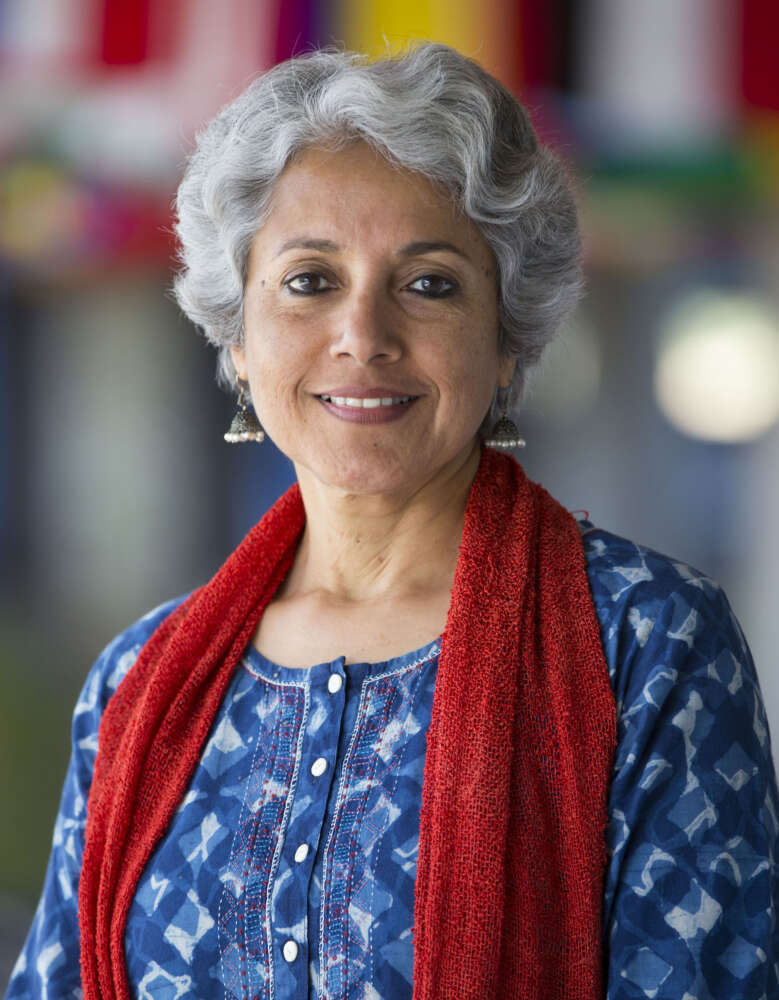What have we learned from COVID-19 and the worldwide public health response to the pandemic?

That will be the topic of a free public talk this week at the University of Guelph by Dr. Soumya Swaminathan, who was most recently the inaugural chief scientist of the World Health Organization (WHO).
A pediatrician from India and a globally recognized researcher on tuberculosis and HIV, Swaminathan has spent 30 years in clinical care and research, working to translate research into impactful programs.
She will speak on “Lessons from the Pandemic for Science and Public Health” on June 29, 1:30 p.m., in University Centre 442.
Her visit will be hosted by the U of G-based Canada India Research Centre for Learning and Engagement (CIRCLE), the University’s One Health Institute and the Office of International Strategy and Partnerships.
Her lecture will draw on her experience in health policy making and research in India and her international work in research and training in tropical diseases.
She has received several honorary doctorates, serves on several national and global advisory bodies, and is an adjunct professor at Karolinska University in Sweden and Tufts University in Boston.
Earlier in 2023, she became chair of the M.S. Swaminathan Research Foundation, whose namesake is a globally acclaimed plant breeder and one of the key architects of India’s Green Revolution. Established as a not-for-profit trust in 1988, the organization promotes the use of science and technology for agricultural and rural development across the country.
Deepening U of G research, teaching ties to India
Swaminathan’s visit this week is intended to further strengthen U of G’s research ties to India in health, nutrition, well-being and sustainable development.
“The University aims to build an institutional relationship with Dr. Swaminathan and the M.S. Swaminathan Research Foundation,” said CIRCLE director Dr. Sharada Srinivasan, a professor in the Department of Sociology and Anthropology within the College of Social and Applied Human Sciences and holder of the Canada Research Chair in Gender, Justice and Development.
“We want to identify opportunities for collaboration through joint research, student internships and visiting/exchange program and other avenues.”
She said this week’s event will help boost U of G’s global profile, demonstrate its leadership in key areas such as agriculture, food systems, environment and One Health, and further deepen connections with Indian and Indo-Canadian businesses and the governments of both countries.
During a campus visit this past spring by the High Commissioner of India to Canada and the Consul General of India (Toronto), U of G launched a new visiting chair in Indian studies to strengthen research and teaching ties between the two nations.
India is the single largest source of international students at U of G. The University has active agreements with higher education institutions in India, including research agreements, student exchange arrangements and strategic partnerships.
CIRCLE is an interdisciplinary hub for cutting-edge research on India and the Indian diaspora and for knowledge exchange between Canadian and Indian scholars.
U of G is also an active member of the Shastri Indo-Canadian Institute; this year, Dr. Pavneesh Madan, a professor in the Department of Biomedical Sciences in the Ontario Veterinary College, will become president of the institute’s executive council.
Contact:
Dr. Sharada Srinivasan
sharada@uoguelph.ca
